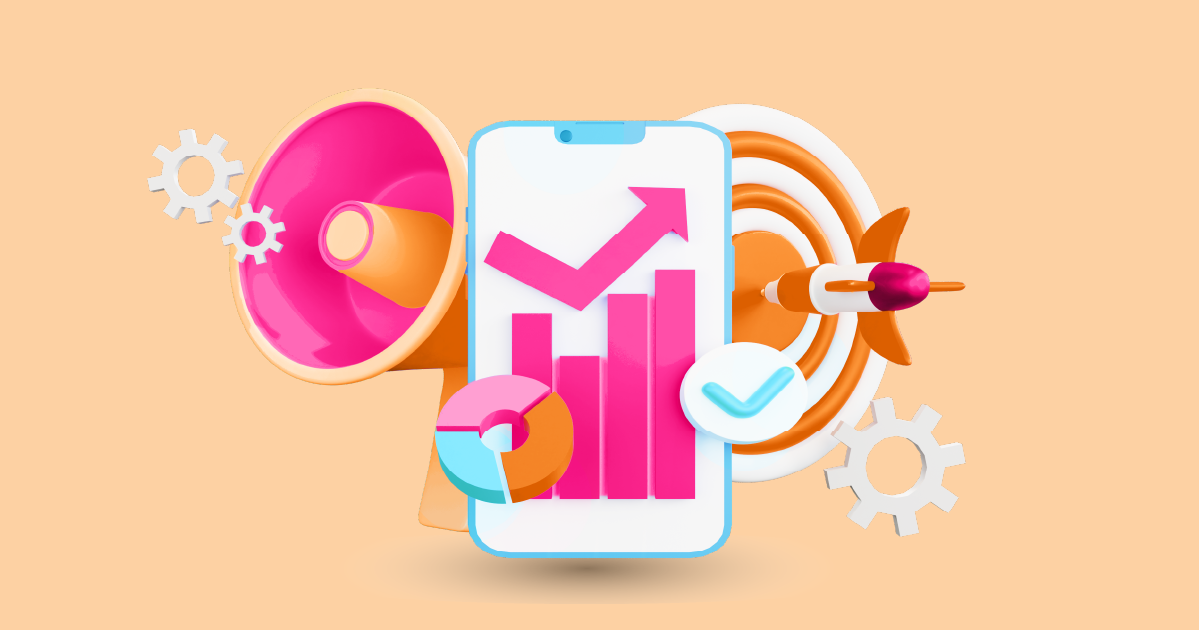Social media has become an integral part of our daily lives, serving as a platform for communication, information sharing, and community building. In this digital age, individuals and businesses alike are constantly mentioned, discussed, and engaged with on various social media platforms. The question is, do you know what’s being said about you or your brand? This is where the importance of monitor social media mentions comes into play.
Why Monitor Social Media Mentions?

1. Brand Reputation Management
Your brand’s reputation is one of its most valuable assets. Monitoring social media mentions allows you to keep a pulse on how your brand is perceived in the digital realm. Positive mentions contribute to a favorable image, while negative ones present an opportunity for proactive reputation management.
2. Customer Feedback and Insights
Social media is a treasure trove of customer feedback. Monitoring mentions provides direct access to what your customers are saying about your products, services, or overall brand experience. This valuable insight can inform product improvements, marketing strategies, and customer relations.
3. Crisis Management
In the age of viral content, crises can escalate rapidly on social media. Timely monitoring allows you to identify and address potential crises before they spiral out of control. Swift and appropriate responses can help mitigate the impact of negative situations.
Monitoring Social Media Mentions Tools
Several tools are available to streamline the process of social media monitoring. These tools not only track mentions but also provide valuable analytics to interpret the data effectively.
1. Mention
Mention is a comprehensive social media monitoring tool that covers various platforms. It offers real-time tracking, sentiment analysis, and competitive intelligence. With Mention, you can stay ahead of conversations relevant to your brand.
2. AIM Insights
AIM Insights specializes in social listening and analytics. It provides insights into consumer trends, brand sentiment, and competitor performance. The platform uses advanced AI to analyze vast amounts of social data.
3. Hootsuite
Hootsuite is a popular social media management platform that includes monitoring features. It allows you to set up streams for specific keywords, hashtags, or mentions, making it easy to track relevant conversations.
4. Google Alerts
Google Alerts is a free and straightforward tool that sends email notifications whenever your specified keywords appear in new content online. While not as robust as some paid options, it’s a useful starting point for individuals and small businesses.
How to Set Up Social Media Monitoring
1. Identify Keywords and Hashtags
Begin by identifying keywords, phrases, and hashtags relevant to your brand or industry. These will serve as the foundation for your monitoring efforts. Consider variations and common misspellings to ensure comprehensive coverage.
2. Choose Relevant Platforms
Not all social media platforms may be equally relevant to your brand. Focus your monitoring efforts on platforms where your target audience is most active. This could include Twitter, Facebook, Instagram, LinkedIn, and others.
3. Set Up Alerts and Notifications
Most monitoring tools allow you to set up alerts for specific keywords or mentions. Configure these alerts to receive notifications in real-time or at a frequency that suits your monitoring strategy. Staying informed promptly is crucial in the fast-paced world of social media.
Analyzing Social Media Sentiment
Understanding the sentiment behind social media mentions is key to deriving meaningful insights. Sentiment analysis categorizes mentions as positive, negative, or neutral.
1. Positive Mentions
Positive mentions indicate satisfaction, endorsements, or successful engagements. Acknowledge and amplify these positive sentiments to reinforce brand loyalty and advocacy.
2. Negative Mentions
Negative mentions require a strategic approach. Address concerns promptly, apologize if necessary, and work towards resolution. Turning a negative experience into a positive one can have a lasting impact on brand perception.
3. Neutral Mentions
Neutral mentions may not demand immediate action, but they provide valuable context. Analyze neutral mentions to identify trends, common feedback, or areas for improvement.
Improving Brand Engagement
Active engagement with social media mentions is a proactive strategy for building a strong online presence.
1. Responding to Mentions
Respond promptly to mentions, especially those requiring a direct response. Engage with users in a friendly and helpful manner to foster positive relationships.
2. Engaging with Positive Mentions
Amplify positive mentions by sharing them on your social media channels. This not only showcases customer satisfaction but also encourages others to share their positive experiences.
3. Addressing Negative Mentions
Address negative mentions professionally and empathetically. Take the conversation offline if necessary and demonstrate a commitment to resolving issues. Transparency can turn negative situations into opportunities for improvement.
Monitoring Competitor Mentions
Understanding what’s being said about your competitors provides a competitive advantage.
1. Understanding Competitive Landscape
Monitor your competitors’ mentions to gain insights into their strengths, weaknesses, and customer perceptions. Identify opportunities to differentiate your brand based on market sentiment.
2. Identifying Opportunities and Threats
Competitor monitoring can unveil market trends, gaps in offerings, or areas where competitors are falling short. Use this information to refine your strategies and capitalize on opportunities.
Measuring the Impact of Monitor Social Media Mentions
Metrics and analytics play a crucial role in evaluating the effectiveness of your social media monitoring efforts.
1. Metrics and Analytics
Track key metrics such as engagement rates, sentiment trends, and share of voice. Analyze this data regularly to assess the impact of your social media presence and make data-driven decisions.
2. Adjusting Strategies Based on Insights
Use the insights gathered from social media mentions to refine your overall marketing and communication strategies. Adapt your content, messaging, and engagement tactics based on what resonates most with your audience.
Avoiding Common Mistakes
While monitoring social media is essential, common mistakes can hinder its effectiveness.
1. Ignoring Negative Mentions
Ignoring negative mentions can escalate issues and harm your brand reputation. Acknowledge negative feedback and demonstrate a commitment to addressing concerns.
2. Overlooking Platform-Specific Monitoring
Different platforms have distinct cultures and communication styles. Tailor your monitoring approach to each platform, considering the nuances of user behavior and expectations.
3. Failing to Adjust Strategies
Social media is dynamic, and trends evolve. Regularly assess the performance of your monitoring strategies and be willing to adapt to changes in the digital landscape.
Future Trends in Monitor Social Media Mentions
The landscape of social media monitoring is continually evolving.
1. Artificial Intelligence Integration
AI-driven tools are becoming more sophisticated, offering predictive analytics and advanced sentiment analysis. Embrace AI integration to stay ahead of the curve.
2. Real-time Monitoring
As the speed of online conversations increases, real-time monitoring becomes crucial. Look for tools that provide instant insights to respond promptly to emerging trends or issues.
3. Emerging Technologies
Stay abreast of emerging technologies such as augmented reality and virtual reality, which may impact how social media mentions are monitored and analyzed in the future.
Challenges
Despite its benefits, social media monitoring comes with challenges that require careful navigation.
1. Volume and Variety of Data
The sheer volume and variety of social media data can be overwhelming. Implement strategies to filter and prioritize relevant information for more effective monitoring.
2. Privacy Concerns
As privacy concerns gain prominence, balancing effective monitoring with respect for user privacy is a delicate task. Ensure compliance with data protection regulations and ethical standards.
3. Algorithmic Bias
Be aware of potential biases in monitoring algorithms. Strive for fairness and inclusivity in the interpretation of social media sentiment to avoid unintentional discrimination.
Conclusion
In conclusion, monitoring social media mentions is a powerful tool for businesses and individuals alike. It provides real-time insights into brand perception, customer sentiments, and market trends. By embracing effective social media monitoring strategies, you not only safeguard your brand reputation but also unlock opportunities for growth and improvement.
Ready to elevate your brand’s social media strategy? Request a demo from AIM Technologies today and experience the next level of digital insights and engagement.
FAQs
How often should I monitor social media mentions?
- Regular monitoring is advisable, at least daily, to stay on top of real-time conversations and address issues promptly.
Are there free tools for social media monitoring?
- Yes, tools like Google Alerts offer basic monitoring for free, while more advanced features may be available in paid tools.
Can social media monitoring prevent a crisis?
- While it may not prevent a crisis, timely monitoring can help identify and address potential issues before they escalate.
How can I measure the success of my social media monitoring efforts?
- Key metrics include engagement rates, sentiment trends, and the impact on brand perception over time.
Is social media monitoring only for large businesses?
- No, businesses of all sizes can benefit from social media monitoring to manage their reputation, engage customers, and stay competitive.




